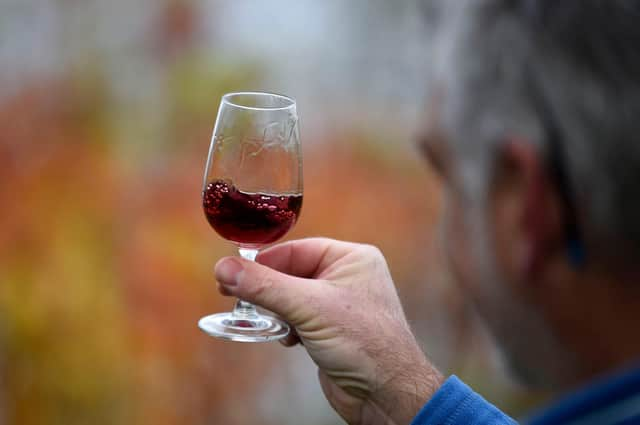Alcohol deaths in Scotland: We can never give up trying to help desperate addicts – Karyn McCluskey


This was the question posed on Twitter by Dr David McCartney from Lothians and Edinburgh Abstinence Programme (Leap) who do amazing work on supporting people into recovery.
I don’t know why. Maybe we’re avoiding confronting it because it might lead us to ask questions about our own drinking.
Advertisement
Hide AdAdvertisement
Hide AdAlcohol is abundant and pernicious in our culture, a thing to be enjoyed by many but, for some, a tool of self-medication to take away the pain of living or a means of dealing with trauma and fear.
We are quick to judge and slow to understand which leads to descriptions of alcoholism as “self-inflicted” or “a lifestyle choice”. Really? No-one asks for an addiction.
Most of us have conversations about alcohol with a wine glass or beer bottle in our hands, unable to appreciate the irony. Yet many of us have a deeper understanding of alcoholism – terrible, painful experiences of having someone close to us become someone unknown to us.
All nurses have patients they remember vividly. Mine are people who came into hospital with alcoholic liver disease – jaundice rendering them yellow, eyes bleary, their abdomen huge with fluid, wheezing and desperately unwell. They were some of the sickest people I have ever met, one gentleman vomiting unsurvivable amounts of blood. I thought it was the most terrible way to die. I still do.
Nights in the emergency rooms are punctuated by those in the depths of alcohol addiction being stitched for head wounds or facial injury. Prisons are littered with people with alcoholism. They’re dry for the time they are in, only to visit the nearest shop on release, like finding water in the desert. The cycle continues. I lost count of the crimes where alcohol played a part, a liquid thread that connects many of the harms that I deal with in justice.
I analysed histories of some of our most vulnerable street drinkers. One man had been taken to the ER more than 400 times by ambulance in past years. He often became aggressive, ended up in police custody, only to be released and for the final act of his tragedy to be replayed again. He had a history of hundreds of offences, including stealing alcohol, causing a public nuisance and assaulting police and emergency workers.
He couldn’t stop drinking. The word “couldn’t” is of real importance for those in the clutches of addiction. My colleagues in the Simon Community are about to open a managed alcohol service, providing dignity and respect for those homeless and in alcoholism with a warm, clean home, healthcare, connection and a managed dose of alcohol.
It is a complicated, sensitive thing. It takes partnership, compassion and a real understanding of how to support complex health and addiction issues. They aim to reduce the harm around drinking and reduce the impact on services through chaotic behaviour.
Advertisement
Hide AdAdvertisement
Hide AdSomeone asked me, “How long will they stay there?” Some may seek to stop and be supported fully to do so. Some may never stop, neither the service nor the tears of their relatives able to counteract the gravitational pull of alcohol – but we can never give up.
Karyn McCluskey is chief executive of Community Justice Scotland
